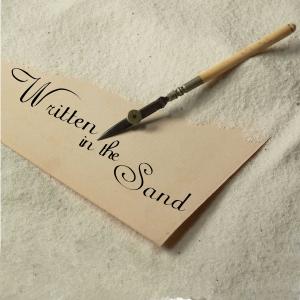Written in the Sand

Written in the Sand Podcast – Weaving a Tangle 009
{margin-right: 50; padding-left 60px; text-align: justify;} p {style="text-indent:20px"; font: .9em Myriad Pro;} h1{font: bold; font size: 150%; "Helvetica";} h2{font: bold; font size: 200%;
"Helvetica";} h5{font: bold; font size: 200%; "Helvetica";}
Written in the Sand
Dune, Book One, Chapter Two part 2
Weaving a Tangle
What we’re doing today is looking at some of the dialogs and actions in Chapter Two and we’re going to talk about some of the underlying ideas. There will be a bit about the governing bodies of the Dune Universe, a bit about attitudes towards certain classes, a dash of this, and a pinch of that. What is being used here are tidbits, so they will be discussed briefly. These are parts that we will use to build bigger ideas with later on.
Shall we begin?
I think the best place to start is to discuss the Baron’s goals here. To understand what the Baron is going after you have to understand the political ladder he is trying to claw his way up. He is seeking power within the Landsraad.
What is the Landsraad? To put it simply, the Landsraad is the ruling body of the Galactic Empire. It is similar to a house of lords. The members of the Landsraad are the landed gentry. The word Landsraad is Norwegian and translates to country counsel. The Landsraad is a kind of Parliament where the ruling classes govern human affairs throughout the Galactic Empire, at least the big things. The small things are governed on a planetary level by the individual rulers. There are major houses, which control entire planets and even multiple planets, and there are minor houses which are very wealthy but do not control things on a worldwide level. The relative rank and power of its members is tracked by standing in CHOAM.
What is CHOAM?
Again we have an etymological puzzle to go through. CHOAM is an acronym that stands for Combined Honnet Ober Advancer Mercantile. Combined and Mercantile indicate that this is a corporation. Indeed, it is the corporation. Honnet is an interesting word because it translates, with different spellings, as Honesty in French, Swedish, and Japanese, a multi-sourced word with a single translation. It stands for trust and honesty and fairness no matter the source.
And then we have Ober, which I’m pronouncing wrong. It is a German word with the simple translation of Waiter. But it doesn’t just mean waiter. It is also the name of a playing card in German deck, where instead of a Queen you would have the Ober. If I had to guess at the etymology in this, the Ober is a servant of the king, indeed a second in command, who is only outranked by the king.
Much like the word valet could refer to a trusted servant of a nobleman, but also refer to the person who parks your car for you, I think that Ober has similar origins. If you think about it, at one time the person who served the king his food, his personal waiter or cup-bearer, was the most trusted and possibly the most powerful person in the kingdom, aside from the king.
So you could translate CHOAM as the association of honest service for the advancement of trade. Which sounds a little corny, but it is what it is.
CHOAM is a massive corporation. What CHOAM does is keep track of the intricate network of exchange of goods. It is the corporation of the movement of merchandise. Advancing Mercantile, if you will. Every transaction in the Galactic Empire goes through CHOAM. Much like how in our current society almost anything can be bought through an Amazon.com style of website. Imagine if one of these type of online marketplaces had a monopoly on all commercial transactions, and the number of shares you own of this company would be how much political power you have. That would be similar to what CHOAM is.
It is an oligarchy,






 Visit Podcast Website
Visit Podcast Website RSS Podcast Feed
RSS Podcast Feed Subscribe
Subscribe
 Add to MyCast
Add to MyCast